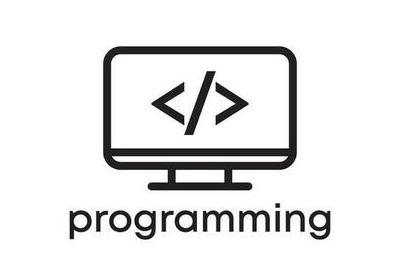728x90
Programming
당위성을 비교
What ?
ChatGPT VS Gemini APIOpenAI에서 제공하는 API로, 주로 대규모 언어 모델(LLM)을 활용하여 자연어 처리를 합니다.
둘의 특징을 고려해서 적절한 상황에 사용합니다.
Compare !
ChatGPT VS Gemini API| 속성 | ChatGPT | GeminiAPI |
| 주요 기능 | 자연어 처리 (대화, 요약, 분석 등) |
복잡한 자연어 처리와 분석, 고급 데이터 인사이트 도출 |
| 모델 | GPT-4 | LLM (LLM+X) 모델 |
| 강점 | 대화형 분석, 요약, 간단한 데이터 처리 |
대규모 데이터 분석, 정교한 패턴 분석 |
| 적합한 사용 사례 | 로그 요약, 간단한 이슈 파악, 오류 설명 |
복잡한 로그 패턴 분석, 이상 탐지, 트렌드 분석 |
| 처리 속도 | 빠름 | 상대적으로 느리지만 깊이 있는 분석 가능 |
| 응답 품질 | 자연어에 강함, 데이터 요약 능력 우수 |
자연어 처리뿐 아니라 데이터 분석 능력도 탁월 |
What ?
ChatGPT
간단한 로그 요약: "최근 로그 데이터를 요약해서 이슈를 파악해줘."
에러 메시지 분석: "로그에 있는 에러의 원인을 설명해줘."
대화형 질의응답: "어떤 페이지에서 오류가 많이 발생하나요?"
response = openai.ChatCompletion.create(
model="gpt-4-turbo",
messages=[{"role": "user", "content": "최근 로그를 요약해줘"}]
)
print(response['choices'][0]['message']['content'])
JSON 형태로 정리된 로그 데이터 : 각 로그 이벤트를 객체로 묶어 구조화하여 전달합니다.
{
"timestamp": "2025-03-20T12:05:21Z",
"user_id": "12345",
"action": "page_view",
"page": "/home",
"duration": 15
}요약 또는 텍스트 기반 로그 데이터 : 원시 로그보다는 정제된 로그가 더 효율적입니다.
- 예: "사용자 12345가 /home 페이지에서 15초 체류 후 /product로 이동했습니다."
자연어 설명이 포함된 데이터 : 데이터가 무엇을 의미하는지 자연어로 설명합니다.
- 예: "2025-03-20 12:05:21에 사용자 12345가 /home 페이지에 접속했습니다.
What ?
Gemini API대규모 로그 패턴 분석: 여러 일자나 서비스의 로그를 비교 분석
이상 탐지 및 인사이트 도출: 예측 불가능한 패턴 파악
트렌드 분석: 사용자 행동 변화나 오류 증가 경향 분석
response = openai.ChatCompletion.create(
model="gemini-1",
messages=[{"role": "user", "content": "대규모 로그 데이터를 분석하고 트렌드를 파악해줘"}]
)
print(response['choices'][0]['message']['content'])
문장 구조를 갖춘 자연어 로그 설명 : "사용자가 특정 페이지에서 머문 시간과 이동 경로를 분석해 주세요."
대화형 질의응답을 위한 형태 : "다음 로그에서 사용자 행동 패턴을 파악하고 UX 개선 방안을 제안해 주세요."
구조화된 데이터 + 자연어 해석 : JSON과 함께 추가로 요약 문구를 넣어 의미를 명확히 전달합니다.
{
"description": "최근 사용자 행동 로그입니다. 페이지 이동과 체류 시간을 분석하여 UX 개선점을 도출해 주세요.",
"logs": [
{
"timestamp": "2025-03-20T12:05:21Z",
"user_id": "12345",
"action": "page_view",
"page": "/home",
"duration": 15
},
{
"timestamp": "2025-03-20T12:05:36Z",
"user_id": "12345",
"action": "page_view",
"page": "/product",
"duration": 30
},
{
"timestamp": "2025-03-20T12:06:10Z",
"user_id": "67890",
"action": "page_view",
"page": "/contact",
"duration": 5
}
]
}
How ?
ChatGPT VS Gemini API💡 공통 사항
// build.gradle
dependencies {
implementation 'org.springframework.boot:spring-boot-starter-web'
implementation 'com.fasterxml.jackson.core:jackson-databind'
implementation 'org.springframework.boot:spring-boot-starter-json'
implementation 'org.apache.httpcomponents:httpclient:4.5.13'
}// .env
api-key: "API_KEY"// 요청 예시
import com.fasterxml.jackson.databind.ObjectMapper;
import org.springframework.web.client.RestTemplate;
import org.springframework.http.*;
import org.springframework.beans.factory.annotation.Value;
@Service
public class OpenAiService {
@Value("${openai.api-key}")
private String apiKey;
private static final String API_URL = "https://api.openai.com/v1/chat/completions";
public String callOpenAiApi(String model, String prompt) {
try {
RestTemplate restTemplate = new RestTemplate();
HttpHeaders headers = new HttpHeaders();
headers.set("Authorization", "Bearer " + apiKey);
headers.setContentType(MediaType.APPLICATION_JSON);
// JSON 형식의 로그 데이터
String logData = "{\"timestamp\": \"2025-03-21T12:30:45Z\", \"user_id\": \"12345\", \"action\": \"page_view\", \"page\": \"/home\", \"duration\": 20, \"browser\": \"Chrome\", \"device\": \"Mobile\"}";
// ChatGPT 요청 데이터
String requestBody = String.format(
"{\"model\": \"%s\", \"messages\": [{\"role\": \"user\", \"content\": \"다음 JSON 로그 데이터를 자연어로 분석해 주세요: %s\"}]}",
model, logData
);
HttpEntity<String> entity = new HttpEntity<>(requestBody, headers);
ResponseEntity<String> response = restTemplate.exchange(API_URL, HttpMethod.POST, entity, String.class);
return response.getBody();
} catch (Exception e) {
e.printStackTrace();
return "Error: " + e.getMessage();
}
}
}
💡 ChatGPT
curl "http://localhost:8080/api/openai/chatgpt?prompt=로그 데이터를 요약하고 문제점을 분석해 주세요."
💡 Gemini API
curl "http://localhost:8080/api/openai/gemini?prompt=로그 데이터를 분석하여 사용자 행동 패턴과 문제점을 도출해 주세요."
728x90
'Other > Programming' 카테고리의 다른 글
| 소프트 삭제를 안 쓰는 경우 (0) | 2025.04.18 |
|---|---|
| 마이그레이션 (0) | 2025.02.07 |
| env (0) | 2025.02.04 |
| Hash Table (0) | 2025.01.23 |
| Map( ) (0) | 2025.01.20 |



